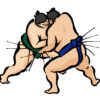What does ureshii desu/na/ne mean? うれしい?嬉しい?

When the Japanese say “uresii(うれしい、嬉しい)”, it means ”I am glad”, “I am happy", “I feel pleasant" and the like.
Of course, they often speak with “ureshii” in sentences. However, there are times when they just say “ureshii", in which case the meaning changes slightly depending on the situation.
Examples of commonly used “ureshii” are as follows.
Ureshii desu.
Ureshii desu.
嬉しいです(うれしいです)。
I’m happy.
I’m glad.
Ureshii desu ne.
Ureshii desu ne.
嬉しいですね(うれしいですね)。
I’m happy.
“Ureshii desu” alone makes sense, but Japanese people often use “ne” at the end of sentences.
There are several reasons;
1. seeking consent from the other
2. being friendly
3. confirming
4. making a request or soliciting
5. being impressed
6. just a habit of saying it
“Ureshii desu” is often used to mean “2”, “5” or “6”.
“Ne” also has a slightly different meaning depending on the situation, so you also need to make a judgment based on the situation.
Oai deki te ureshii desu.
Oai dekite ureshii desu.
お会いできて嬉しいです(おあいできてうれしいです。)
I am glad to meet you
This is a polite expression of “I am glad to meet you”.
Totemo ureshii desu.
Totemo ureshii desu.
とても嬉しいです(とてもうれしいです)。
I’m very happy.
Ureshii desu ka?
Ureshii desu ka?
嬉しいですか(うれしいですか)?
Are you happy?
Watashi wa ureshii desu.
Watashi wa ureshii desu.
私は嬉しいです(わたしはうれしいです)。
I’m happy.
This expresses “ureshii desu" in full sentences with the subject.
Japanese often tends to be spoken without the subject if it is obvious.
Ureshii na.
Ureshii na.
嬉しいな(うれしいな)。
I’m happy
“Na" is a sentence-ending particle representing an emotion.
Ureshii da….
Since “da" is not used after the adjective, “Ureshii da (happy)" is incorrect.
If you want to use “da" in the sense of declaring, change it as follows.
Ureshii no da.
Ureshii n da.
However, it may be said “ureshii da” in some local dialects of somewhere in Japan.
I don’t know which region it is though.
















